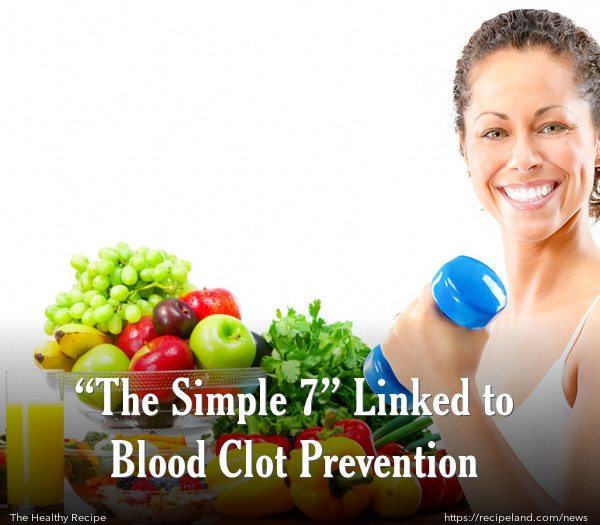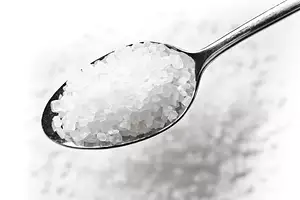A recent study of over 30,000 middle aged adults has found that the heart healthy lifestyle choices recommended by the American Heart Association prove helpful in preventing blood clots.
The American Heart Association’s guidelines for “The Simple 7” are to “get active, control cholesterol, eat better, manage blood pressure, lose weight, reduce blood sugar and stop smoking”(1).
The adults in this study with better overall heart health had over 40% lowered risk for developing blood clots compared to those with poor heart health.
Blood clots form in blood vessels, and when they break off and move through the blood stream they can cause heart attack, stroke, or pulmonary embolism in the lungs. These are all extremely life threatening and often fatal – the larger the clot, the larger vessels it can block.
People who have survived a heart attack or stroke due to blood clots reaching the heart or brain are typically prescribed anticoagulant drugs such as Coumadin, blood thinning drugs, or aspirin therapy.
The study shows that preventing blood clots, heart attack, stroke and other cardiovascular disease can be achieved by following “The Simple 7” recommendations of quitting smoking, exercising, eating a healthy diet, losing weight and controlling blood pressure, blood sugar and cholesterol levels.
If you are not living a heart healthy lifestyle with these measures in mind, it is never too late to start. Even 30 minutes of exercise a day is enough to get you on the right track with improving your overall heart health and losing weight.
Taking steps to lower your blood pressure will help prevent the risk of blood clots from causing dangerous blood vessel blockage. The AHA states that maintaining normal blood pressure reduces the “risk of blockages which also protects your heart and brain.”(1)
Eating a diet rich in fresh fruits, vegetables, whole grains and lean meats will also help prevent blood clots and heart disease. Avoid foods that are high in fats and saturated oils to keep cholesterol under control (and keep calories down).
There is also research that taking nutritional supplements of omega-3 fatty acids (EPA and DHA) from fish and fish oil can help prevent blood clots.
“Fish oils having the highest levels of EPA and DHA include mackerel, herring and salmon. Some fish, such as cod and haddock, store most of their fat in the liver, therefore the liver oils of these fish should be taken rather than the fillet.”(2)
In addition to leading an active lifestyle and maintaining a healthy diet, consider speaking with your health care provider about the heart healthy benefits of omega-3 fatty acid supplements.
(1)American Heart Association’s Life’s Simple 7:
https://mylifecheck.heart.org/Multitab.aspx?NavID=3&CultureCode=en-us
(2)Waghmare, K. R., Dhabale, P. N., Mane, V. B., & Nagar, M. M. (2011). Omega 3-fatty acids-for health and treatment. Der Pharma Chemica, 3(1), 513-517.
Image courtesy of photostock / FreeDigitalPhotos.net










Comments